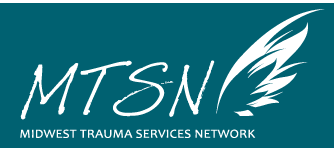Our Partners
Midwest Trauma Services Network partners with local, national, and international organizations to provide the most robust and up-to-date services.
International Trauma Center
The International Trauma Center (ITR) has devoted its resources and extraordinary personnel to the design, development and practice of the fusion of state of the art emergency medical and psychosocial interventions that allow the service provider and the patient to access resilient recovery in shorter periods of time with less invasive care. ICDR provides the Boston Childrens Foundation with the medical expertise and the disaster behavioral health expertise to respond to disaster management challenges across diverse settings with a particular focus on children and long term child protection post disaster.
The Office of Juvenile Justice &
Delinquency Prevention (OJJDP)
In a remarkably swift response to the data, OJJDP has moved to support Trauma Informed Care as a child focused intervention strategy that will benefit communities well into the future. The OJJDP's demand for collaboration and "Whole Child" approach is the fundamental driving force behind our mission and the Midwest Trauma Services Network (MTSN).
Boston Children’s Foundation (BCF)
BCF, began its non-profit operations in 2004, with a base in Metro Boston and extended initiatives in the greater New England area, providing evidence-based traumatic stress reduction and disaster relief programs since 1996 with strategic partners in the behavioral and medical health fields. The BCF team is committed to offering clients an array of choices among services. In terms of community-based traumatic incident intervention, this spectrum of choice must include not only types of interventions, but also, perhaps most importantly, locations of care and culturally and linguistically compatible interventions.
Gulf Coast Trauma Institute
The Gulf Coast Trauma Institute aims to bring high quality trauma-informed care, mental health, and wellness training and consultation services to businesses, schools, and social service/mental health organizations in the South/Gulf Coast region.
The Tulalip Tribes
We are the Tulalip (pronounced Tuh’-lay-lup) Tribes, successors in interest to the Snohomish, Snoqualmie, Skykomish, and other allied tribes and bands signatory to the 1855 Treaty of Point Elliott. Our tribal population is over 4,800 with about 2,600 members residing on the 22,000 acre Tulalip Indian Reservation located north of Everett and the Snohomish River and west of Marysville, Washington.
Eastern Iowa Mental Health and Disability Services Region
Providing support and linkage to mental health, crisis, residential, and vocational services in Cedar, Clinton, Jackson, Muscatine, and Scott counties in Iowa.
Rainbowdance
Rainbowdance groups are highly structured and theme specific. Using carefully selected rhythmic orientation, through music and repetition, each group session is complemented by storytelling and theme based movement improvisations. The music used for this program is a composite of simple folk tunes and classical pieces; the stories and improvisations have themes of cooperation, respect, trust, honor, and gentleness, and are developed to expose each child to adaptive coping strategies for successfully meeting normal developmental challenges, as well as constructive solutions to conflict.
By offering a repetitive, sensorimotor menu of successful coping solutions and alternatives to violence, Rainbowdance provides a conditioning sequence that supports ongoing solution generation (essential problem solving skill component), ability to ask for help in challenging social situations, ability to take another peer's viewpoint and ability to self-soothe. The movement sequences are developmentally appropriate and allow each child to join and to succeed.
The Crisis Center of Tampa Bay
The Crisis Center of Tampa Bay brings help, hope and healing to people facing serious life challenges or trauma resulting from sexual assault or abuse, domestic violence, financial distress, substance abuse, medical emergency, suicidal thoughts, emotional or situational problems.








